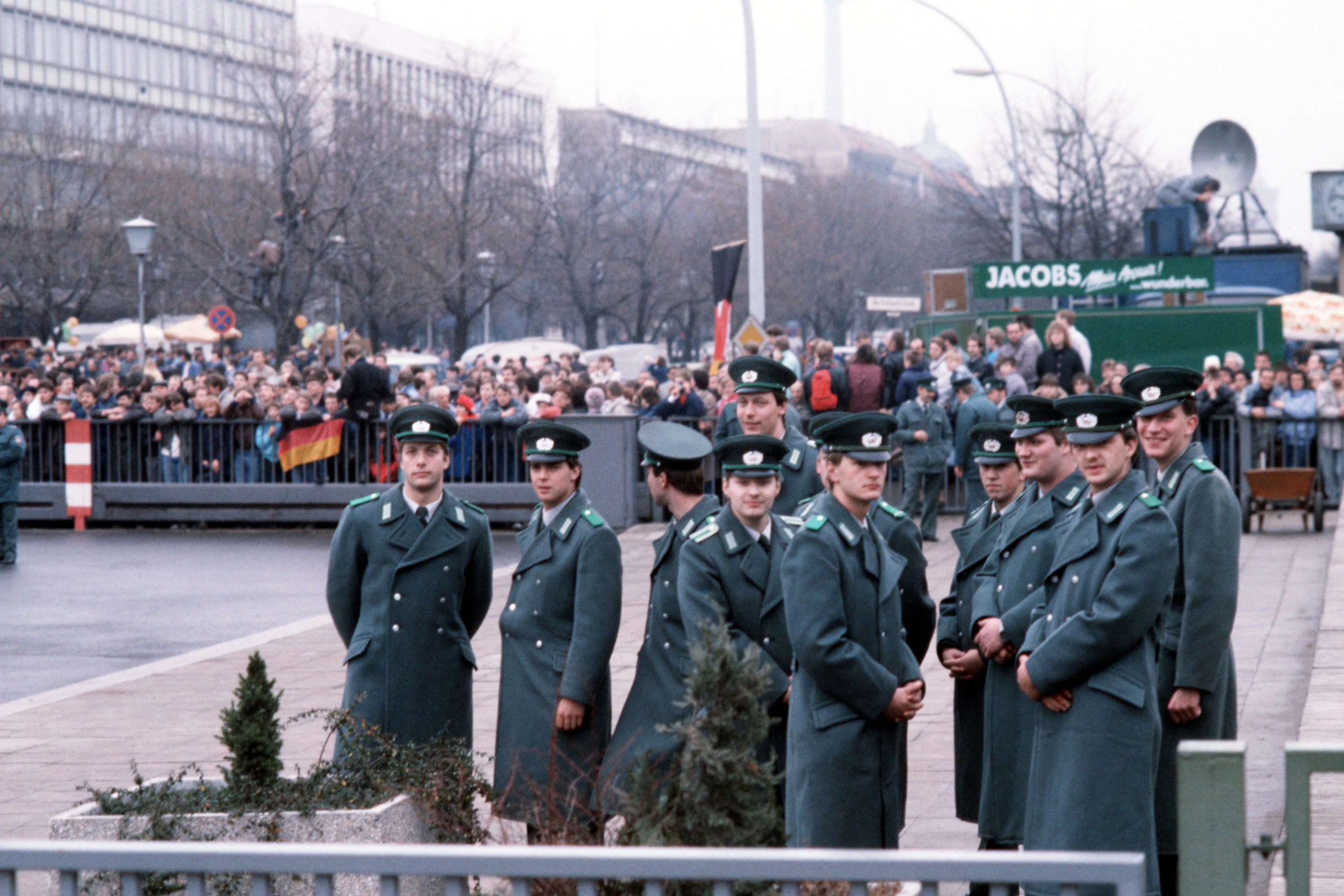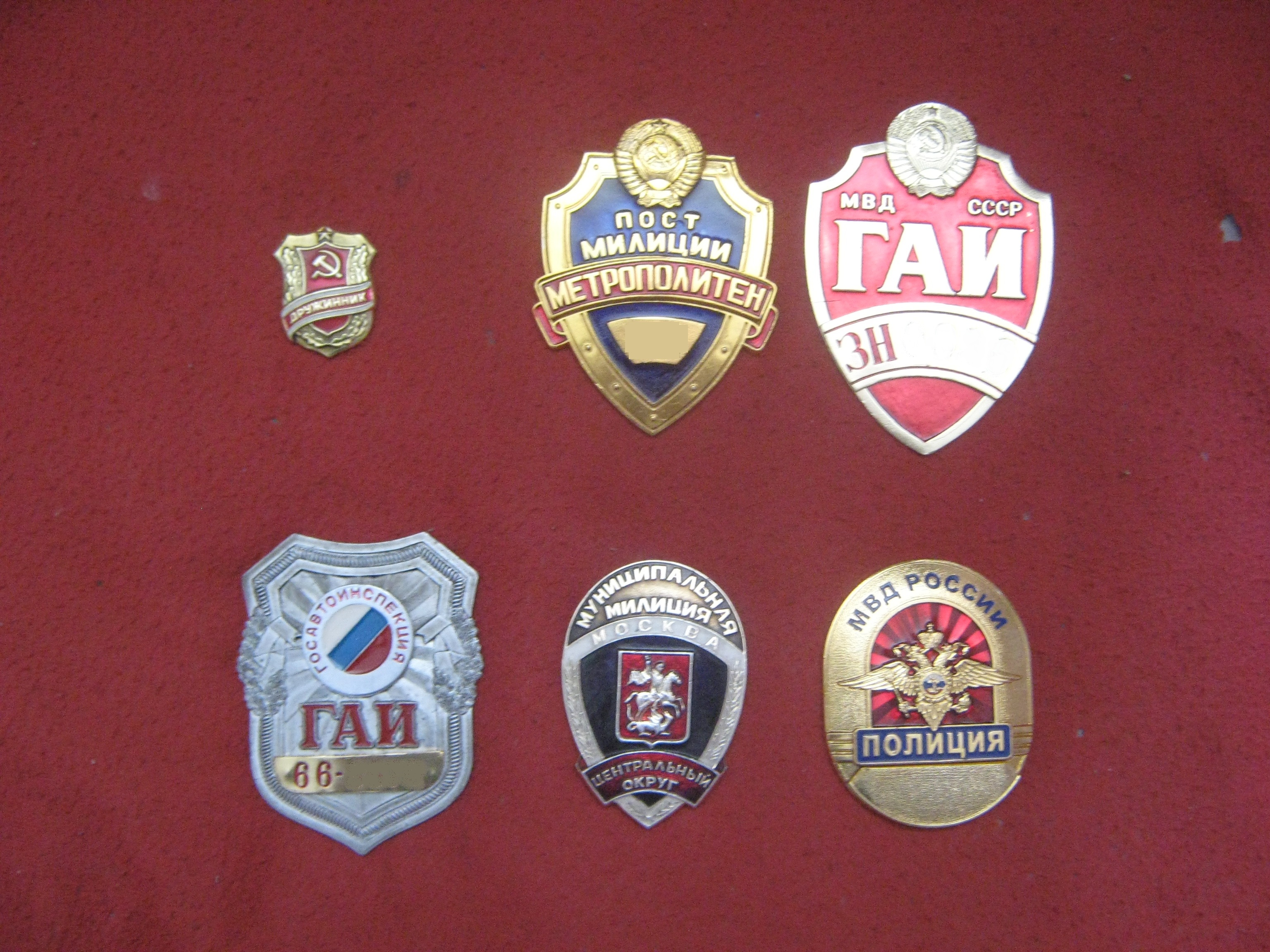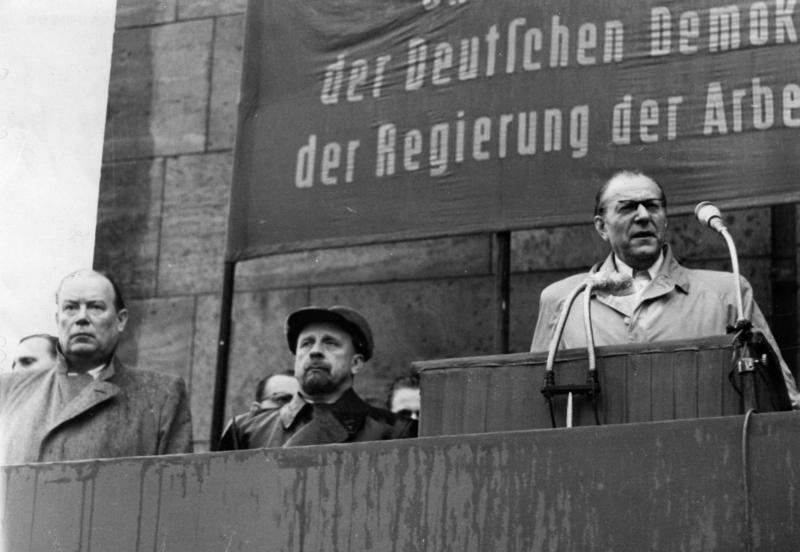|
History Of The Volkspolizei
The ''Volkspolizei'' ( German for "People's Police") served as the armed forces and the national police of the German Democratic Republic ( East Germany) from 1946 to 1956. The '' Volkspolizei'' was responsible for most law enforcement in East Germany, but because of its organisation and structure it was also considered a paramilitary force. Unlike police forces in most countries, they were equipped with armored personnel carriers and artillery and trained as military units. Founding On October 31, 1945, the Soviet Military Administration in Germany (SVAG) approved the arming of the community-level police forces; the forces which had been established in the regions of Germany the Soviet Union had occupied following World War II. In 1946 the name ''Volkspolizei'' began to be used and by August the organisation was placed under the control of the German Administration of the Interior. The first ''Volkspolizisten'' were mostly former Wehrmacht officers who had become commu ... [...More Info...] [...Related Items...] OR: [Wikipedia] [Google] [Baidu] |
Volkspolizei DDR Einsatzfahrzeug Wappen + Revierschild
The ''Deutsche Volkspolizei'' (DVP, German language, German for "German People's Police"), commonly known as the ''Volkspolizei'' or VoPo, was the national police force of the German Democratic Republic (East Germany) from 1945 to 1990. The Volkspolizei was a highly-centralized agency responsible for most civilian Law enforcement agency, law enforcement in East Germany, maintaining 257,500 personnel at its peak. History The ''Volkspolizei'' was effectively founded in June 1945 when the Soviet Military Administration in Germany (SVAG) established central police forces in the regions of Nazi Germany it occupied following after World War II.Thomas Lindenberger, ‘The German People's Police (1945 - 1990)’, in Hans Ehlert and Rüdiger Wenzke (ed.) ‘In the service of the party - Handbook of Armed Organs of the GDR’ (Berlin, 1998) pp. 98-100 The SVAG approved the arming of community-level police forces on 31 October 1945, but nevertheless remained a non-militarised force, an ... [...More Info...] [...Related Items...] OR: [Wikipedia] [Google] [Baidu] |
Militsiya
''Militsiya'' ( rus, милиция, , mʲɪˈlʲitsɨjə) was the name of the police forces in the Soviet Union (until 1991) and in several Eastern Bloc countries (1945–1992), as well as in the non-aligned SFR Yugoslavia (1945–1992). The term continues in common and sometimes official usage in some of the individual former Soviet republics such as Belarus, Tajikistan, Uzbekistan and Kyrgyzstan, as well as in the partially recognised or unrecognised republics of Abkhazia, South Ossetia, Transnistria, DNR and LNR. Name and status The name ''militsiya'' as applied to police forces originates from a Russian Provisional Government decree dated April 17, 1917, and from early Soviet history: both the Provisional Government and the Bolsheviks intended to associate their new law-enforcement authority with the self-organisation of the people and to distinguish it from the czarist police. The militsiya was reaffirmed in Russia on October 28 (November 10, according to the ne ... [...More Info...] [...Related Items...] OR: [Wikipedia] [Google] [Baidu] |
Heinz Hoffmann
Heinz Hoffmann (28 November 1910 – 2 December 1985) was Minister of National Defense in the Council of Ministers of the German Democratic Republic, and since 2 October 1973 member of the Politburo of the Central Committee of the Socialist Unity Party (SED). Youth Born in Mannheim, Grand Duchy of Baden, Hoffmann came from a working-class family. After attending school in Mannheim, he spent the 1925 – 1930 period learning to be an engine fitter at MWM (Motoren Werke Mannheim AG). From 1926 to 1930 he was a member of the Young Communist League of Germany, followed by membership in the Communist Party of Germany (KPD). During this time Hoffman served several short prison sentences for participating in demonstrations and fights. Immigration After the rise of the Nazi Party in 1933, he was faced with a warrant for his arrest. Hoffmann fled Germany and immigrated to the Soviet Union by the way of Switzerland and Czechoslovakia. Until 1945 he used the alias “Heinz Roth,” wh ... [...More Info...] [...Related Items...] OR: [Wikipedia] [Google] [Baidu] |
Minister Of Defence
A defence minister or minister of defence is a Cabinet (government), cabinet official position in charge of a ministry of defense, which regulates the armed forces in sovereign states. The role of a defence minister varies considerably from country to country; in some the minister (government), minister is only in charge of general budget matters and procurement of equipment; while in others the minister is also an integral part of the operational military chain of command. A defence minister could be titled Minister for Defense, ''Minister of National Defense'', Secretary of Defense, ''Secretary of State for Defence'', Minister of War or some similar variation. Lists * List of current defence ministers See also * Chief of Defence * Commander-in-chief * Ministry of defence * War cabinet References {{Types of government minister Defence ministers, Government ministers by portfolio, Defence Defence ministries, ... [...More Info...] [...Related Items...] OR: [Wikipedia] [Google] [Baidu] |
Wilhelm Zaisser
Wilhelm Zaisser (20 June 1893 – 3 March 1958) was a German communist politician and statesman who served as the founder and first Minister for State Security of the German Democratic Republic (1950–1953). Early life Born in Gelsenkirchen, Westphalia, Zaisser studied to become a teacher from 1910 to 1913 in Essen. When World War I began a year later, Zaisser joined the Imperial German Army. Upon leaving the service in 1918, Zaisser joined the Independent Social Democratic Party of Germany (USPD) and in 1919 returned to Essen, where he became a school teacher. During this period, Zaisser became an active communist. During the Kapp Putsch in 1920, he was a military leader of the fledgling Red Ruhr Army, which led to his arrest and dismissal as a teacher in 1921. After his release, Zaisser worked for the Communist Party of Germany (KPD) as a propagandist. From 1921 to 1922, Zaisser edited the ''Ruhr Echo'' and the ''Bergischen Voice of the People''. In 1923, Zaisser was recr ... [...More Info...] [...Related Items...] OR: [Wikipedia] [Google] [Baidu] |
Main Administration Of Training
Main may refer to: Geography *Main River (other) **Most commonly the Main (river) in Germany *Main, Iran, a village in Fars Province *" Spanish Main", the Caribbean coasts of mainland Spanish territories in the 16th and 17th centuries *'' The Main'', the diverse core running through Montreal, Quebec, Canada, also separating the Two Solitudes *Main (lunar crater), located near the north pole of the Moon * Main (Martian crater) People and organisations *Main (surname), a list of people with this family name *Ma'in, alternate spelling for the Minaeans, an ancient people of modern-day Yemen * Main (band), a British ambient band formed in 1991 *Chas. T. Main, an American engineering and hydroelectric company founded in 1893 *MAIN (Mountain Area Information Network), former operator of WPVM-LP (MAIN-FM) in Asheville, North Carolina, U.S. Ships * ''Main'' (ship), an iron sailing ship launched in 1884 * SS ''Main'', list of steamships with this name * ''Main'' (A515), a mo ... [...More Info...] [...Related Items...] OR: [Wikipedia] [Google] [Baidu] |
West Germany
West Germany is the colloquial term used to indicate the Federal Republic of Germany (FRG; german: Bundesrepublik Deutschland , BRD) between its formation on 23 May 1949 and the German reunification through the accession of East Germany on 3 October 1990. During the Cold War, the western portion of Germany and the associated territory of West Berlin were parts of the Western Bloc. West Germany was formed as a political entity during the Allied occupation of Germany after World War II, established from eleven states formed in the three Allied zones of occupation held by the United States, the United Kingdom, and France. The FRG's provisional capital was the city of Bonn, and the Cold War era country is retrospectively designated as the Bonn Republic. At the onset of the Cold War, Europe was divided between the Western and Eastern blocs. Germany was divided into the two countries. Initially, West Germany claimed an exclusive mandate for all of Germany, representing itself as t ... [...More Info...] [...Related Items...] OR: [Wikipedia] [Google] [Baidu] |
Poland
Poland, officially the Republic of Poland, is a country in Central Europe. It is divided into 16 administrative provinces called voivodeships, covering an area of . Poland has a population of over 38 million and is the fifth-most populous member state of the European Union. Warsaw is the nation's capital and largest metropolis. Other major cities include Kraków, Wrocław, Łódź, Poznań, Gdańsk, and Szczecin. Poland has a temperate transitional climate and its territory traverses the Central European Plain, extending from Baltic Sea in the north to Sudeten and Carpathian Mountains in the south. The longest Polish river is the Vistula, and Poland's highest point is Mount Rysy, situated in the Tatra mountain range of the Carpathians. The country is bordered by Lithuania and Russia to the northeast, Belarus and Ukraine to the east, Slovakia and the Czech Republic to the south, and Germany to the west. It also shares maritime boundaries with Denmark and Sweden. ... [...More Info...] [...Related Items...] OR: [Wikipedia] [Google] [Baidu] |
Refugee
A refugee, conventionally speaking, is a displaced person who has crossed national borders and who cannot or is unwilling to return home due to well-founded fear of persecution.FAQ: Who is a refugee? ''www.unhcr.org'', accessed 22 June 2021 Such a person may be called an until granted by the contracting state or the |
Allies Of World War II
The Allies, formally referred to as the United Nations from 1942, were an international military coalition formed during the Second World War (1939–1945) to oppose the Axis powers, led by Nazi Germany, Imperial Japan, and Fascist Italy. Its principal members by 1941 were the United Kingdom, United States, Soviet Union, and China. Membership in the Allies varied during the course of the war. When the conflict broke out on 1 September 1939, the Allied coalition consisted of the United Kingdom, France, and Poland, as well as their respective dependencies, such as British India. They were soon joined by the independent dominions of the British Commonwealth: Canada, Australia, New Zealand and South Africa. Consequently, the initial alliance resembled that of the First World War. As Axis forces began invading northern Europe and the Balkans, the Allies added the Netherlands, Belgium, Norway, Greece, and Yugoslavia. The Soviet Union, which initially had a nonaggression pa ... [...More Info...] [...Related Items...] OR: [Wikipedia] [Google] [Baidu] |
Prisoner Of War
A prisoner of war (POW) is a person who is held captive by a belligerent power during or immediately after an armed conflict. The earliest recorded usage of the phrase "prisoner of war" dates back to 1610. Belligerents hold prisoners of war in custody for a range of legitimate and illegitimate reasons, such as isolating them from the enemy combatants still in the field (releasing and repatriating them in an orderly manner after hostilities), demonstrating military victory, punishing them, prosecuting them for war crimes, exploiting them for their labour, recruiting or even conscripting them as their own combatants, collecting military and political intelligence from them, or indoctrinating them in new political or religious beliefs. Ancient times For most of human history, depending on the culture of the victors, enemy fighters on the losing side in a battle who had surrendered and been taken as prisoners of war could expect to be either slaughtered or enslaved. Ear ... [...More Info...] [...Related Items...] OR: [Wikipedia] [Google] [Baidu] |
Purge
In history, religion and political science, a purge is a position removal or execution of people who are considered undesirable by those in power from a government, another organization, their team leaders, or society as a whole. A group undertaking such an effort is labeled as purging itself. Purges can be either nonviolent or violent, with the former often resolved by the simple removal of those who have been purged from office, and the latter often resolved by the imprisonment, exile, or murder of those who have been purged. Characteristics The Shanghai massacre of 1927 and the Night of the Long Knives of 1934, in which the leader of a political party turns against a particular section or group within the party and kills its members, are commonly called "purges" while mass expulsions on grounds of racism and xenophobia, such as the deportation of the Crimean Tatars are not. Though sudden and violent purges are notable, most purges do not involve immediate execution or imprison ... [...More Info...] [...Related Items...] OR: [Wikipedia] [Google] [Baidu] |







